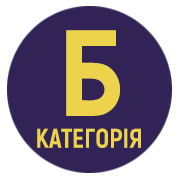PECULIARITIES OF SPEECH DEVELOPMENT IN CHILDREN WITH INTELLECTUAL DISABILITIES
DOI:
https://doi.org/10.32782/ped-uzhnu/2024-7-5Keywords:
intellectual disability, speech development, correctional and developmental work, coherent speech, individual approachAbstract
The article examines the features of speech development in children with intellectual disabilities (ID). Key problems associated with speech development are analyzed, including: limited vocabulary, difficulties in forming coherent speech, errors in grammatical forms, low level of phonemic perception, as well as difficulties in understanding abstract concepts and following multi-stage instructions. The article examines the features of speech functions in children with ID, reveals typical difficulties that interfere with their effective learning, social interaction and everyday life. The influence of biological, socio-pedagogical and economic factors on speech development in children with ID is emphasized. The main aspects of speech underdevelopment are analyzed, such as limited vocabulary, low level of grammatical skills, difficulties in forming coherent speech and problems of phonemic perception. The emphasis is on the importance of an individual approach, a stimulating environment and complex correctional and developmental techniques that allow improving the communicative, cognitive and social skills of children with intellectual disabilities. The article analyzes the research of leading domestic and foreign scientists who studied the development of speech in children with intellectual disabilities, in particular, the work of L. Vygotsky, O. Boryak, E. Sobotovich and others. Special attention is paid to the importance of sociocultural influence and interactive methods that stimulate speech activity. The article offers practical recommendations for correctional teachers aimed at the development of speech in children with intellectual disabilities. In particular, the emphasis is on the effectiveness of using visual materials, structured instructions, interactive games and other practical methods
References
Бєлова О. Особливості розвитку мовлення у дітей з інтелектуальними порушеннями. Медична освіта. 2021. № 1. С. 5–10. URL: https://ojs.tdmu.edu.ua/index.php/med_osvita/article/view/11876/11299.
Боряк О. В. До питання логопедичної роботи з дітьми з порушеннями інтелектуального розвитку. О. В. Боряк. Науковий часопис НПУ імені М. П. Драгоманова. Серія 19: Корекційна педагогіка та спеціальна психологія. 2014. Вип. 27. С. 31–37.
Виготський Л. Мислення та мова. Харків: Майстри психології, 2021. 432 с.
Кротенко В., Оробей М. Загальна характеристика дітей із затримкою психічного розвитку. Науковий часопис. Спеціальна психологія. 2014. С. 338–341. URL: https://enpuir.npu.edu.ua/bitstream/handle/123456789/7747/Krotenko.pdf; jsessionid=EB76AD52B9D2DA671E1F21AA6C159736?sequence=1.
Соботович Е., Андрусишин Л., Бартенева Л., Данилавичюте Є., Тищенко В., Трофименко Л., 1998 Методика виявлення мовних порушень у дітей та діагностика їх готовності до шкільного навчання. К.: ПП «Актуальна освіта». 345 с.







